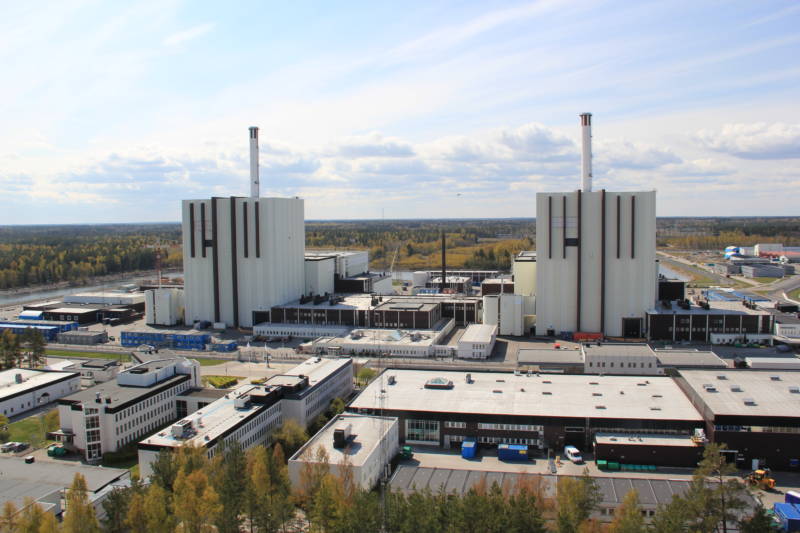Making strides toward nuclear waste disposal by empowering communities

Sweden gets a lot of press as the country that’s figured out not only how and where to dispose of its nuclear waste but – significantly — how to win community support.
Today, in the second installment of our radio series, we’ll hear the Swedes explain what it took to change public attitudes.
While the U.S. – and pretty much everywhere else in the world – is in a political meltdown over the topic, The Swedish Nuclear Fuel and Waste Management Company or SKB, is making strides toward a deep geologic disposal site at Forsmark in Eastern Sweden. In this video, a company representative explains how the company plans to encapsulate the fuel in copper canisters before burying it.
And you can peek inside the central interim storage facility with this video that shows where the waste is currently stored in what looks like large swimming pools.

Forsmark is part of the 22,000-person community of Osthammar which has been deeply involved in the repository issue for at least 15 years. You can read more about its work on the community website.
While there are still plenty of critics and some unresolved questions about whether the company’s proposed disposal method can withstand the test of time, local residents so far are willing to trust that the waste can be managed safely. And they’ve come to accept that the stable bedrock in their region could be one of the safest places to bury all of Sweden’s nuclear waste for the next 100,000 years.
Osthammar of course stands to benefit from the jobs and investment that would come along with a repository, but everyone I talked with in Sweden told me this willingness to step forward is much more than financial.
“We have a Swedish expression, when you hunt the fox, you have to deal with the bite, says Brita Freudenthal, a spokeswoman for SKB. “We have the nuclear power, we use the electricity and we created the spent fuel and this is our responsibility. Most Swedes are very much aware of that.”
Jacob Spangenberg, the Mayor of Osthammar, told me he doesn’t believe burying the waste in his community will create a stigma or hurt tourism in this picturesque area on the Baltic. Rather, he says, it will generate global interest “In how to solve this very difficult issue, that people in Japan, and California and Germany must solve in one way or another.”
Among the people I ran across in Scandinavia was Janet Kotra, a senior staffer with the U.S. Nuclear Regulatory Commission. She was there for a meeting of international nuclear communities and told me the United States can learn a few things from Sweden, which admitted a long time ago that solving the nuclear waste dilemma is not just a technical issue.
With plans for a repository at Nevada’s Yucca Mountain on hold — perhaps permanently — Kotra says the US government is already thinking differently when it comes to community engagement. Regulators and government agencies need a commitment, she says “that the process for making regulatory decisions is available and accessible to a broader public so there can be that social acceptability.” If not, Kotra adds, “We’ll find ourselves right back where we are today and we’ll find ourselves once again looking for another alternative.”
Tune in to the companion radio series: Part 1: California’s nuclear waste profile. Part 2 (Tue): What we can learn from Sweden. Part 3 (Wed): The town that said: “Yes, in our back yard.”
See Monday’s blog post to see where California’s nuclear waste is located and to explore an interactive timeline of the history nuclear waster disposal.
